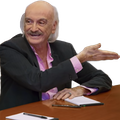tiennamen
not even close, really demolishing your own credibility and claims to have read anything
天安门工厂 is a place, not an event. btw in China it's called "June 4th Incident" and common knowledge, easily findable on Baidu.
The Tiananmen Square ‘Massacre’: The West’s Most Persuasive, Most Pervasive Lie.


the CIA's Operation Aerodynamic made sure of that